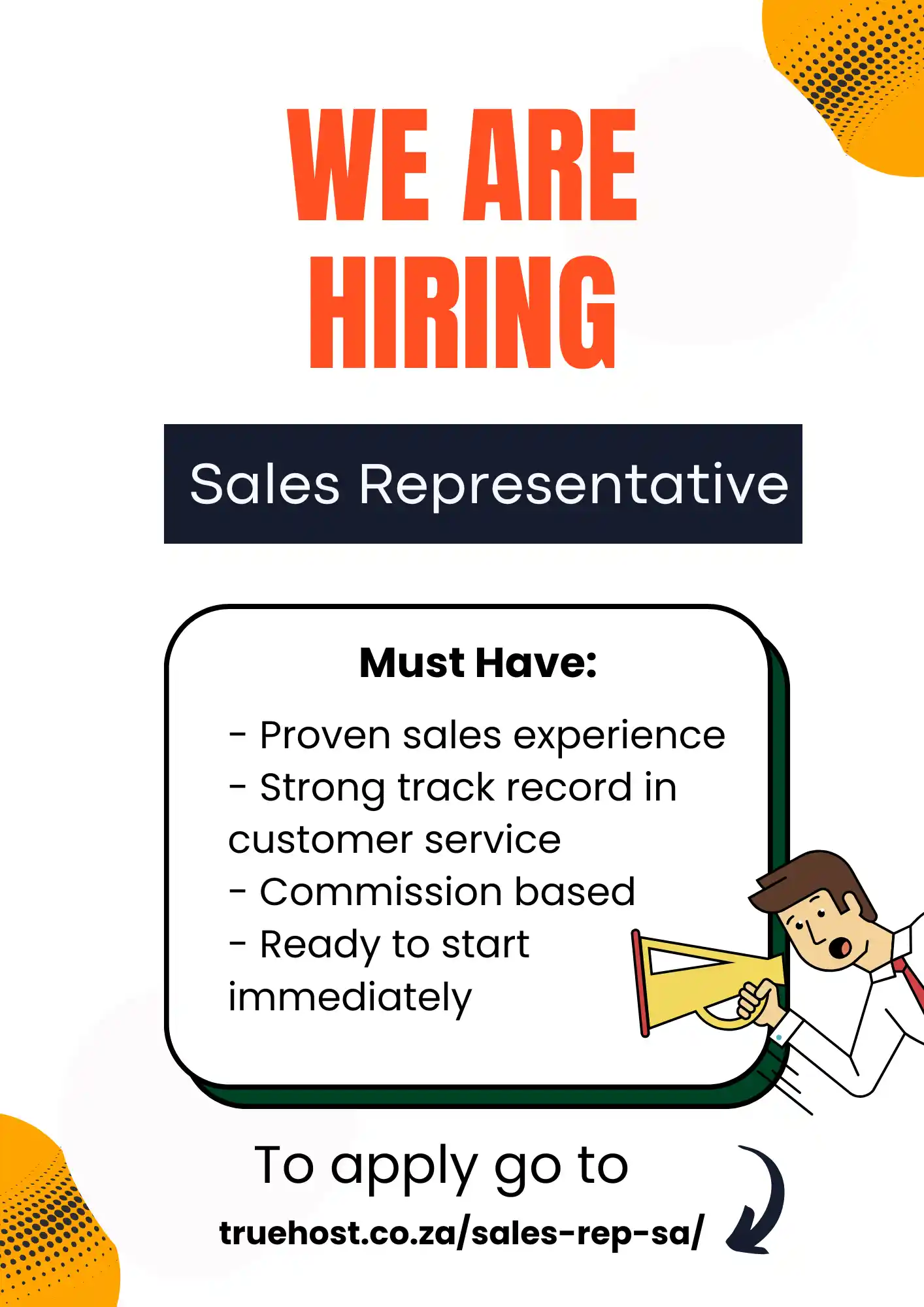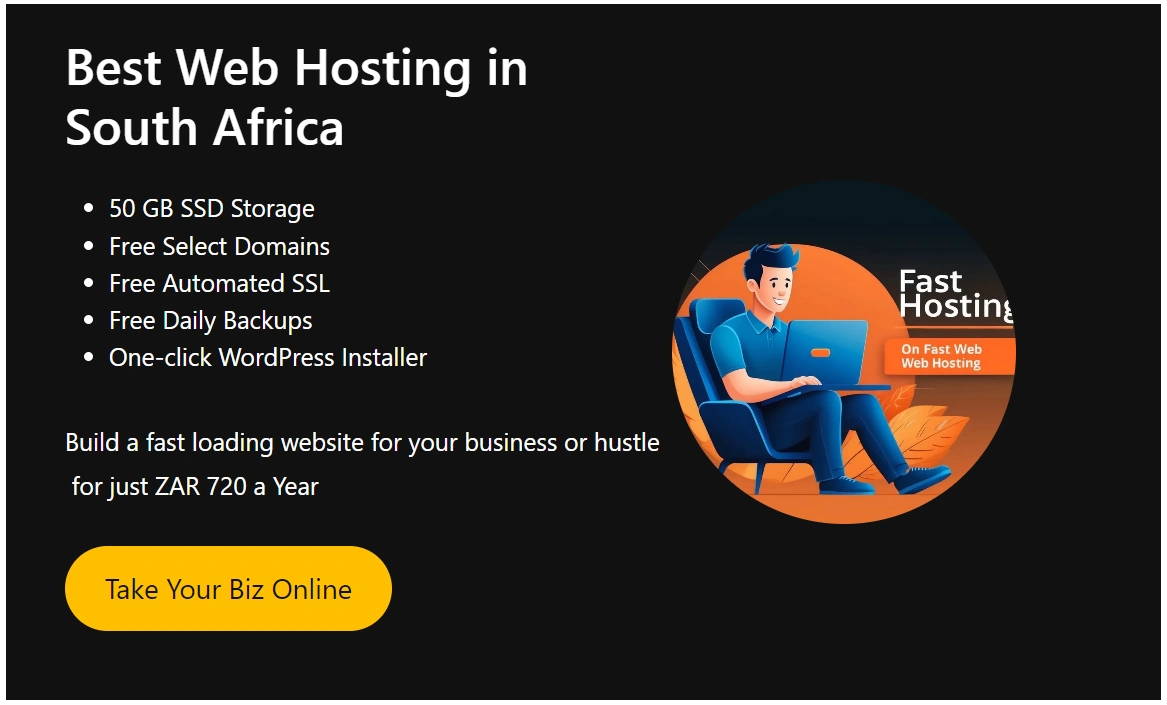Having a killer website isn’t just nice to have – it’s a must.
But here’s the thing: not all web developers are created equal.
And when you’re looking to hire the best web developers in South Africa, you need to know exactly what you’re doing.
I’ve been in the trenches, folks.
I’ve hired developers from all over the world, and let me tell you, South Africa is a goldmine of tech talent.
But how do you separate the wheat from the chaff?
How do you find those diamonds in the rough who can turn your vision into digital reality?
That’s exactly what we’re going to dive into today.
By the end of this post, you’ll have a step-by-step playbook to hire the best web developers in South Africa, avoiding the pitfalls that trap so many others.
Let’s get started.
Table of Contents
What You’ll Need
Before we jump into the nitty-gritty, let’s talk about what you need to have in place:
- Clear project requirements: You wouldn’t build a house without blueprints, right? Same goes for your web project. Get crystal clear on what you need.
- Budget considerations: Know what you can spend. Remember, cheap isn’t always cheerful, but expensive doesn’t guarantee quality either.
- Timeline expectations: When do you need this done? Be realistic, but also be prepared to pay more for rush jobs.
Here’s a quick checklist to ensure you’re ready:
- [ ] Detailed project scope document
- [ ] Approved budget range
- [ ] Realistic timeline
- [ ] List of must-have features
- [ ] Understanding of your target audience
Got all that? Great.
Now let’s get into the meat and potatoes.
Step-by-Step Instructions
1. Define Your Project Scope
First things first: you need to know exactly what you want.
I’m talking specifics here, people.
What features does your website need?
What’s the primary goal?
Are we talking e-commerce, content management, or a custom web app?
Write it all down.
The more detailed you are now, the easier it’ll be to find the right developer later.
Remember, a vague project description is like trying to hit a target in the dark.
You might get lucky, but chances are, you’ll miss by a mile.
2. Research the South African Web Development Industry
Now, let’s talk about why South Africa is such a hotbed for web development talent.
The country has a robust tech education system, a growing startup ecosystem, and a culture of innovation.
But here’s the kicker: the cost of living is lower than in many Western countries, which means you can often get top-tier talent at competitive rates.
Do your homework on the local tech scene.
Familiarize yourself with:
- Popular tech stacks in South Africa
- Average rates for different skill levels
- Time zone differences and how they might affect collaboration
This knowledge will be your secret weapon in the hiring process.
3. Utilize Online Platforms and Job Boards
Time to cast your net wide.
There are tons of online platforms where South African web developers hang out:
- LinkedIn (a goldmine for professional connections)
- GitHub (to check out their code contributions)
- Stack Overflow (see their problem-solving skills in action)
- Local job boards like CareerJunction and PNet
Don’t just post a job ad and wait.
Be proactive.
Search for developers with the skills you need and reach out directly.
Personalize your messages – trust me, it makes a world of difference.
4. Leverage Local Tech Communities and Events
Want to find the cream of the crop?
Go where the developers are.
South Africa has a vibrant tech community with regular meetups, hackathons, and conferences.
Some key events to keep an eye on:
Attend these events or sponsor them if you can.
It’s not just about finding talent – it’s about immersing yourself in the community and building relationships.
Remember, the best hires often come through personal connections and recommendations.
5. Conduct Thorough Interviews
Now we’re getting to the good stuff.
When you’ve got a shortlist of candidates, it’s time to separate the pros from the posers.
Here’s how to structure your interviews:
- Technical assessment: Give them a real problem to solve. Watch how they approach it.
- Cultural fit: Can you see yourself working with this person long-term?
- Communication skills: How well do they explain complex concepts?
- Problem-solving ability: Throw them a curveball and see how they handle it.
Pro tip: Don’t just focus on technical skills.
The best developers are also great communicators and problem solvers.
6. Assess Technical Skills and Portfolio
Talk is cheap. Show me the code.
Any developer worth their salt will have a portfolio of past projects.
Dive deep into their work.
Look for:
- Clean, well-documented code
- Projects similar to what you need
- Evidence of problem-solving skills
- Attention to detail and user experience
Don’t be afraid to ask for explanations of their design choices or how they overcame specific challenges.
7. Check References and Past Work
Trust, but verify.
Reach out to past clients or employers.
Ask the tough questions:
- Was the developer reliable?
- Did they meet deadlines?
- How was their communication?
- Would you hire them again?
One negative review isn’t necessarily a deal-breaker, but patterns are red flags.
Pay attention to how the developer handles criticism too – it says a lot about their professionalism.
8. Make a Competitive Offer
Found your perfect match? Don’t lose them over a lowball offer.
Research market rates for the skill level you’re after.
Remember, in South Africa, as anywhere, you get what you pay for.
A competitive offer isn’t just about money. Consider:
- Flexible working hours
- Remote work options
- Professional development opportunities
- Performance bonuses
The goal is to make your offer not just acceptable, but exciting.
Top 5 Platforms To Find Web Developers in South Africa
If you are looking for the right person, start with these platforms:
Clutch.co
Clutch is a B2B ratings and reviews platform that features a comprehensive directory of South African web developers.
You can filter by budget, project size, industry, and more.
Clutch also includes verified client reviews and detailed company information.
GoodFirms
GoodFirms is another B2B research and review platform that features a dedicated section for web development companies in South Africa.
It offers similar filtering options as Clutch, as well as a “Leaders Matrix” to compare agencies based on their market presence and client satisfaction.
The Manifest
The Manifest is a business news and how-to website that also features a curated directory of web development companies.
They provide detailed company profiles, client reviews, and project examples.
LinkedIn is a powerful professional networking platform that can be used to connect with web developers directly. You can search for individuals based on their skills, experience, and location. LinkedIn also hosts industry groups where you can network with potential candidates.
Local Job Boards and Freelance Platforms
Consider exploring job boards specific to South Africa, such as Indeed South Africa, CareerJunction, and PNet.
Freelance platforms like Upwork and Fiverr can also connect you with South African web developers, but be sure to carefully vet their portfolios and references.
Average Costs To Hire a Web Developer in South Africa
The average cost of hiring a web developer in South Africa varies depending on several factors, including:
- Experience and Skill Level: Junior web developers will typically charge lower rates than senior developers with more experience and specialized skills.
- Project Scope and Complexity: The size and complexity of your website project will significantly impact the cost. Simple brochure websites will cost less than complex e-commerce platforms.
- Freelancer vs. Agency: Freelance web developers often charge less than agencies, but agencies can offer a broader range of services and expertise.
- Location: Developers based in major cities like Cape Town and Johannesburg may charge slightly higher rates than those in smaller towns.
With those factors in mind, here’s a general overview of the average costs you can expect:
Hourly Rates:
- Junior Web Developers: R300 – R500 per hour
- Mid-Level Web Developers: R500 – R1000 per hour
- Senior Web Developers: R1000 – R2000+ per hour
Project-Based Costs:
- Simple Brochure Website: R10,000 – R30,000
- Small Business Website with Basic E-commerce: R30,000 – R70,000
- Custom E-commerce Website: R70,000 – R200,000+
- Complex Web Application: R200,000+
Remember that these are just average figures, and the actual cost of your project may vary depending on your specific requirements.
Get quotes from multiple developers or agencies to compare prices and find the best fit for your budget and needs.
Other Cost Considerations:
- Ongoing Maintenance and Support: Factor in the cost of ongoing website maintenance and support after the initial development.
- Hosting and Domain: Budget for the cost of website hosting and domain registration.
- Content Creation: Consider the cost of creating high-quality content for your website.
- Marketing and SEO: If you want to promote your website, you’ll need to allocate a budget for marketing and SEO services.
Tips for Success
Alright, you’ve hired your dream developer. Now what?
Here are some tips to ensure a successful collaboration:
Build long-term relationships
- Treat your developer as a partner, not just a hired gun
- Invest in their growth and they’ll invest in your success
Cultural considerations
- Be aware of South African holidays and cultural norms
- Respect work-life balance – it’s valued highly in South African culture
Remote work best practices
- Set clear expectations for communication and availability
- Use project management tools to keep everyone on the same page
- Schedule regular video calls to maintain a personal connection
Remember, the hiring process is just the beginning.
The real work starts when you begin collaborating on your project.
Common Mistakes to Avoid
Learn from the school of hard knocks – without the bruises.
Here are some common pitfalls to steer clear of:
Overlooking soft skills
- Technical prowess is crucial, but so is the ability to communicate and work in a team
- Don’t ignore red flags in personality or work ethic, no matter how skilled the developer is
Neglecting to verify qualifications
- Always check certifications and degrees
- Don’t be fooled by an impressive-looking CV – dig deeper
Underestimating project complexity
- Be realistic about what can be achieved in your timeframe and budget
- Listen to your developer’s input on timelines and resource needs
Micromanaging
- Trust the expertise you’re paying for
- Focus on outcomes rather than dictating every step of the process
Ignoring cultural differences
- What’s normal in your business culture might not be in South Africa
- Be open to different ways of working and communicating
Avoid these mistakes, and you’ll be well on your way to a successful partnership with your South African web developer.
Troubleshooting
Even with the best preparation, challenges can arise. Here’s how to handle common issues:
Dealing with communication challenges
- Set up regular check-ins to ensure everyone’s on the same page
- Use video calls when possible to pick up on non-verbal cues
- Encourage open, honest feedback in both directions
Handling time zone differences
- Find overlapping work hours and schedule important meetings then
- Use asynchronous communication tools for non-urgent matters
- Be flexible – sometimes you might need to have early morning or late night calls
Addressing skill gaps
- Provide resources for ongoing learning and development
- Consider pairing your developer with a mentor or senior team member
- Be patient – sometimes a little extra time and support is all that’s needed
Remember, problems are opportunities in disguise.
How you handle challenges can strengthen your relationship with your developer and lead to better outcomes in the long run.
Final Thoughts
There you have it, folks – your roadmap to hire the best web developers in South Africa.
From defining your project scope to making that perfect offer, we’ve covered all the bases.
Remember, hiring a web developer isn’t just about finding someone with the right technical skills.
It’s about finding a partner who can bring your vision to life and take your online presence to the next level.
South Africa is bursting with talented developers who can do just that.
Now it’s time for you to take action.
Start by clearly defining your project needs, then dive into the vibrant South African tech community.
Be thorough in your vetting process, and don’t be afraid to go the extra mile to find that perfect fit.
With the right approach, you’ll be well on your way to hiring the best web developers in South Africa and creating something truly spectacular.
So what are you waiting for?
Your dream website is just a great developer away.
Get out there and make it happen!
FAQ Section
How much does it typically cost to hire a web developer in South Africa?
Costs can vary widely based on experience and project complexity. Junior developers might charge $20-40 per hour, while senior developers can command $50-100+ per hour. Always balance cost with quality and project needs.
Is it better to hire a freelance developer or go through an agency?
It depends on your project needs. Freelancers can be more cost-effective for smaller projects, while agencies offer more resources and can handle larger, complex projects. Consider your budget, project scope, and long-term needs when deciding.
How long does the hiring process usually take?
On average, it can take 2-4 weeks to find and hire a qualified developer. This includes time for posting job ads, reviewing applications, conducting interviews, and checking references. Complex roles or high-level positions might take longer.
What are the most in-demand web development skills in South Africa?
Currently, skills in high demand include JavaScript (particularly React and Node.js), Python, PHP, and mobile app development. Full-stack developers are also highly sought after.
How can I ensure good communication with a remote South African developer?
Set clear expectations from the start, use project management tools, schedule regular video calls, and be mindful of time zone differences. Encourage open communication and be responsive to your developer’s needs and concerns.
Read also:
 Web Hosting
Web Hosting Windows HostingBuilt for Windows apps and websites – stability, speed and flexibility
Windows HostingBuilt for Windows apps and websites – stability, speed and flexibility Reseller HostingLaunch a hosting business without technical skills or expensive infrastructure
Reseller HostingLaunch a hosting business without technical skills or expensive infrastructure Affiliate ProgramRefer customers and earn commissions from sales across our platform
Affiliate ProgramRefer customers and earn commissions from sales across our platform Domain SearchFind and secure a domain name in seconds with our quick lookup tool
Domain SearchFind and secure a domain name in seconds with our quick lookup tool CO ZA Domains
CO ZA Domains All DomainsExplore domain names from over 324 TLDs globally – all in one place
All DomainsExplore domain names from over 324 TLDs globally – all in one place Free Whois Lookup Tool South Africa
Free Whois Lookup Tool South Africa VPS
VPS SSLs
SSLs









